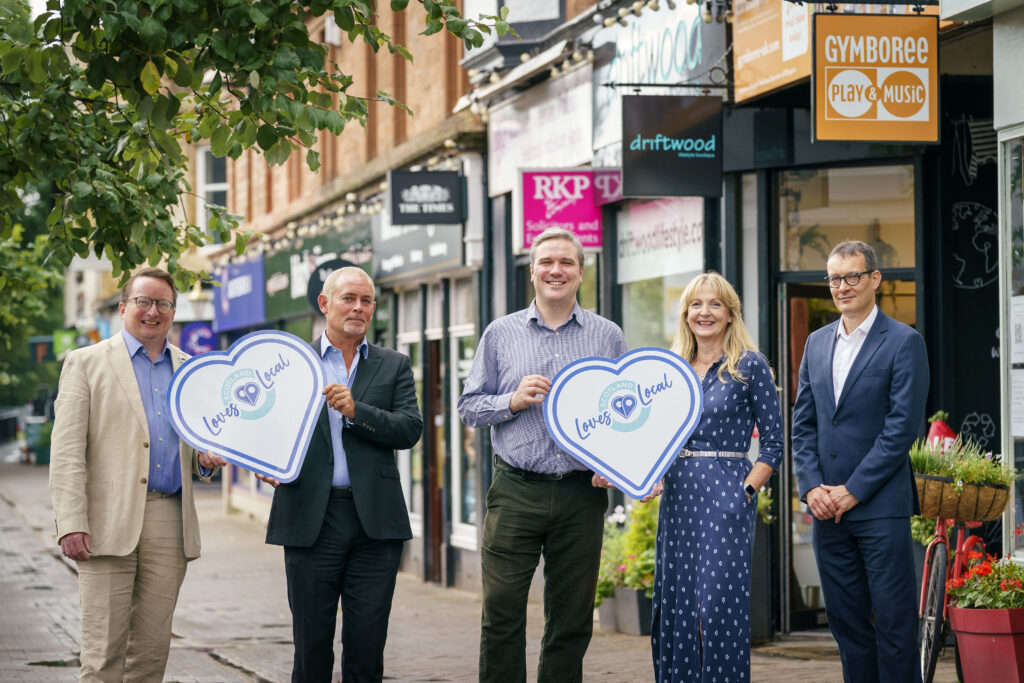AMBITIOUS hopes have been revealed to increase the number of Business Improvement Districts across Scotland.
There are currently 36 in operation throughout the country, representing towns, cities and regions, with local organisations acting collaboratively to drive investment and change.
A strong pipeline of new developing districts, Scotland’s Improvement Districts – the body charged with growing their impact and influence – wants to see their scale and reach grow.

The Scottish Government is encouraging this, with hopes that the latest innovation of the model – the Community Improvement District – could deliver further growth.
On scale, improvement district growth is a move which has the power to unlock millions of pounds-worth of investment in local communities, helping improve them while boosting business and safeguarding jobs.
Phil Prentice, SIDs’ National Programme Director and Chief Officer of Scotland’s Towns Partnership, said: “The difference an improvement district makes is colossal, generating money that might otherwise not be flowing into the community.
“It’s not just that, though. It’s the ideas, projects and collaboration – that collective investment which makes such a difference. It widens ambition, gets people talking and working together.
“Even if a community’s performing relatively well, the investment from an improvement district can take things to the next level.
“If a community’s underperforming, it can pull it up by the bootstraps and give it a better chance, building in sustainability and resilience.
“Scotland has the most expansive programme of improvement districts in the world. We would like to see the movement grow substantively in the next few years. Achieving that would be a real success.”
Improvement districts came to the fore in many areas throughout the coronavirus pandemic, playing a key part in community responses as well as championing initiatives such as the Scotland Loves Local campaign, urging people to support businesses close to them.
Traditional Business Improvement Districts (BIDs) operate in a wide variety of places including Aberdeen City Centre and Paisley to Alloa, Stirling, Milngavie, Peterhead, Elgin and Falkirk.
Innovations on the model have seen Tourism BIDs created around Loch Ness and in Moray Speyside, while East Lothian is home to world’s first Food and Drink BID.
The community of Possilpark in Glasgow made history last year by voting to create the UK’s first Community Improvement District, Remaking Saracen.
It expands on the traditional BID model by widening the net of organisations involved and with a say on how investment is targeted.
As well as local businesses Remaking Saracen has included heavy involvement from social landlord ng homes as well as other community groups.
It’s a way of working that SIDs believes could open opportunities for greater numbers of communities to consider establishing an improvement district. Others are already keen to find out more.
The Scottish Government would also like to see more Community Improvement Districts as part of the movement’s growth.
Community Wealth Minister Tom Arthur said: “I support this drive to create more Business and Community Improvement Districts to build on significant successes so far.
“With greater community involvement they can attract more investment through greater collaboration with local people, supporting business growth and protecting jobs.
“This will help us deliver the entrepreneurship ambitions set out in the Town Centre Action Plan and the National Strategy for Economic Transformation by creating enterprising communities.
“We all have a role to play in ensuring our towns enable more people to benefit directly from the wealth generated by local communities.”
Kimberley Guthrie, Director of Operations at Scotland’s Towns Partnership, added: “Community Improvement Districts are an exciting innovation that really captures that spirit of collaboration to improve not just businesses directly, but the wider community, making it a better place to live, work and visit.
“Encouraging people to love their local area is key, not only as we continue to recover from Covid-19, but also as we support the people and jobs around us during the cost of living crisis and act more sustainably to tackle the climate emergency.”

